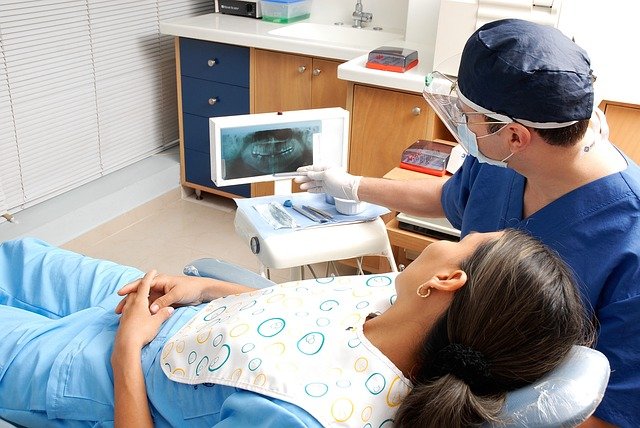Stage 4 Lung Cancer Survival Rates and 2025 Treatments in the United States Including Immunotherapy
Five-year relative survival for stage 4 lung cancer in the U.S. is roughly 12% for non‑small cell and about 4% for small cell. This article summarizes these statistics and 2025 treatment advances, including targeted therapies and immunotherapies, to inform patients and caregivers.

Stage 4 lung cancer, also known as metastatic lung cancer, occurs when cancer cells have spread beyond the lungs to other parts of the body such as the liver, bones, brain, or other organs. This advanced stage requires comprehensive treatment approaches that focus on controlling the disease, managing symptoms, and improving quality of life. Recent medical advances have introduced several promising treatment options that are changing the landscape of stage 4 lung cancer care.
Understanding Stage 4 Lung Cancer Survival Rates
Survival rates for stage 4 lung cancer vary significantly based on multiple factors including the specific type of lung cancer, patient age, overall health status, and response to treatment. The five-year survival rate for stage 4 non-small cell lung cancer (NSCLC) is approximately 8-10%, while extensive-stage small cell lung cancer (SCLC) has a five-year survival rate of about 3-5%. However, these statistics represent averages and individual outcomes can vary considerably. Newer treatments have shown promise in extending survival times, with some patients experiencing significantly longer periods of disease control than historical averages would suggest.
The Role of Comprehensive Genetic Testing in Treatment Decisions
Genetic testing has become a cornerstone of modern lung cancer treatment planning. Comprehensive molecular profiling examines tumor tissue for specific genetic mutations, protein expressions, and biomarkers that can guide treatment selection. Common genetic alterations tested include EGFR mutations, ALK rearrangements, ROS1 fusions, BRAF mutations, and PD-L1 expression levels. This testing process typically takes 1-2 weeks and helps oncologists determine which targeted therapies or immunotherapies might be most effective for each individual patient. The results of genetic testing can significantly influence treatment recommendations and may identify patients who are candidates for specific clinical trials.
Targeted Therapy: Precision Medicine in Action
Targeted therapy represents a personalized approach to cancer treatment that attacks specific genetic mutations driving tumor growth. For patients with EGFR mutations, drugs like osimertinib (Tagrisso) have shown remarkable effectiveness in controlling disease progression. ALK-positive patients may benefit from medications such as alectinib (Alecensa) or brigatinib (Alunbrig). ROS1-positive tumors often respond well to crizotinib (Xalkori) or entrectinib (Rozlytrek). These targeted treatments typically cause fewer side effects than traditional chemotherapy and can provide disease control for extended periods, sometimes years, in responsive patients.
Immunotherapy: Harnessing the Immune System
Immunotherapy has revolutionized stage 4 lung cancer treatment by helping the patient’s immune system recognize and attack cancer cells more effectively. Checkpoint inhibitors such as pembrolizumab (Keytruda), nivolumab (Opdivo), and atezolizumab (Tecentriq) have demonstrated significant benefits for many patients. These treatments work by blocking proteins that prevent immune cells from attacking cancer. Combination immunotherapy approaches, such as using two different checkpoint inhibitors together or combining immunotherapy with chemotherapy, have shown even greater effectiveness in some patients. The success of immunotherapy often depends on factors like PD-L1 expression levels and tumor mutation burden.
Advances in Treatment for Extensive-Stage Small Cell Lung Cancer
Extensive-stage small cell lung cancer has historically been one of the most challenging forms of lung cancer to treat. However, recent advances have provided new options for patients. The addition of immunotherapy drugs like durvalumab (Imfinzi) or atezolizumab to traditional chemotherapy regimens has shown improved survival outcomes. Maintenance therapy with checkpoint inhibitors following initial chemotherapy has also demonstrated benefits in extending progression-free survival. Additionally, targeted therapies for specific SCLC subtypes are being developed, including DLL3-targeted treatments and PARP inhibitors for patients with certain genetic characteristics.
| Treatment Category | Example Medications | Estimated Monthly Cost Range |
|---|---|---|
| Targeted Therapy | Osimertinib, Alectinib | $12,000 - $18,000 |
| Immunotherapy | Pembrolizumab, Nivolumab | $10,000 - $15,000 |
| Combination Therapy | Chemo + Immunotherapy | $15,000 - $25,000 |
| Traditional Chemotherapy | Carboplatin, Pemetrexed | $3,000 - $8,000 |
Prices, rates, or cost estimates mentioned in this article are based on the latest available information but may change over time. Independent research is advised before making financial decisions.
The treatment landscape for stage 4 lung cancer continues to evolve rapidly, with new therapies entering clinical trials regularly. Many patients benefit from participating in clinical trials that provide access to cutting-edge treatments not yet widely available. The integration of precision medicine, immunotherapy, and traditional treatments has created a more hopeful outlook for stage 4 lung cancer patients than ever before. Working closely with an experienced oncology team that specializes in lung cancer ensures patients receive the most current and appropriate treatment options for their specific situation.
This article is for informational purposes only and should not be considered medical advice. Please consult a qualified healthcare professional for personalized guidance and treatment.




